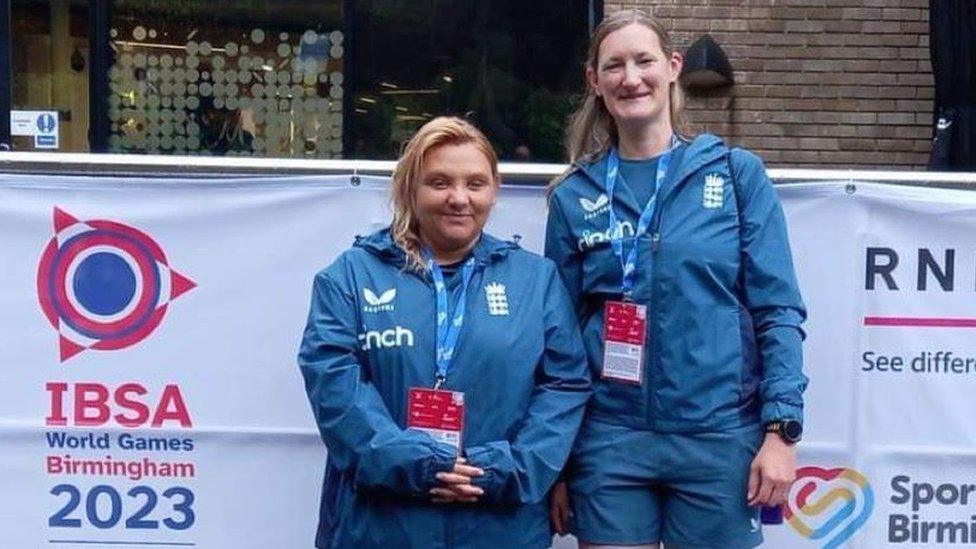The growing sport helping blind people track sound
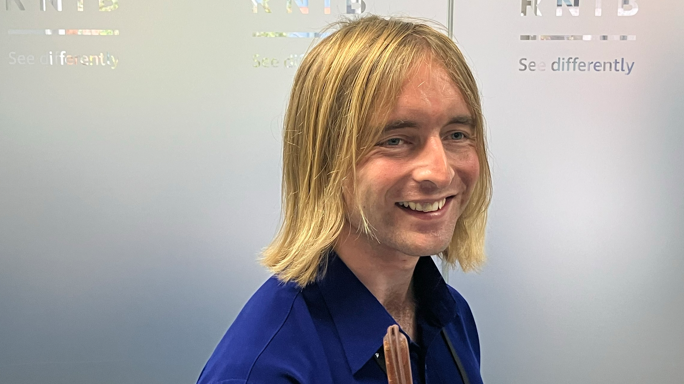
Warren Wilson said it was "totally unexpected" when he lost his sight in 2009 due to a "rare genetic condition"
- Published
A man who lost his sight at 19 says a fast-growing sport is helping blind and partially sighted people track sounds - a crucial skill that can boost spatial awareness.
Warren Wilson, from Ely, goes to a club in Cambridge to play Showdown, which he describes as a mixture of table tennis and air hockey.
Two people wearing blindfolds - who each have flat, paddle-type bats - try to get a ball into their opponent's goal. The ball makes a rattling or jingling noise.
"You can learn all sorts of things around tracking sounds that can be useful on a day-to-day basis," said Mr Wilson.
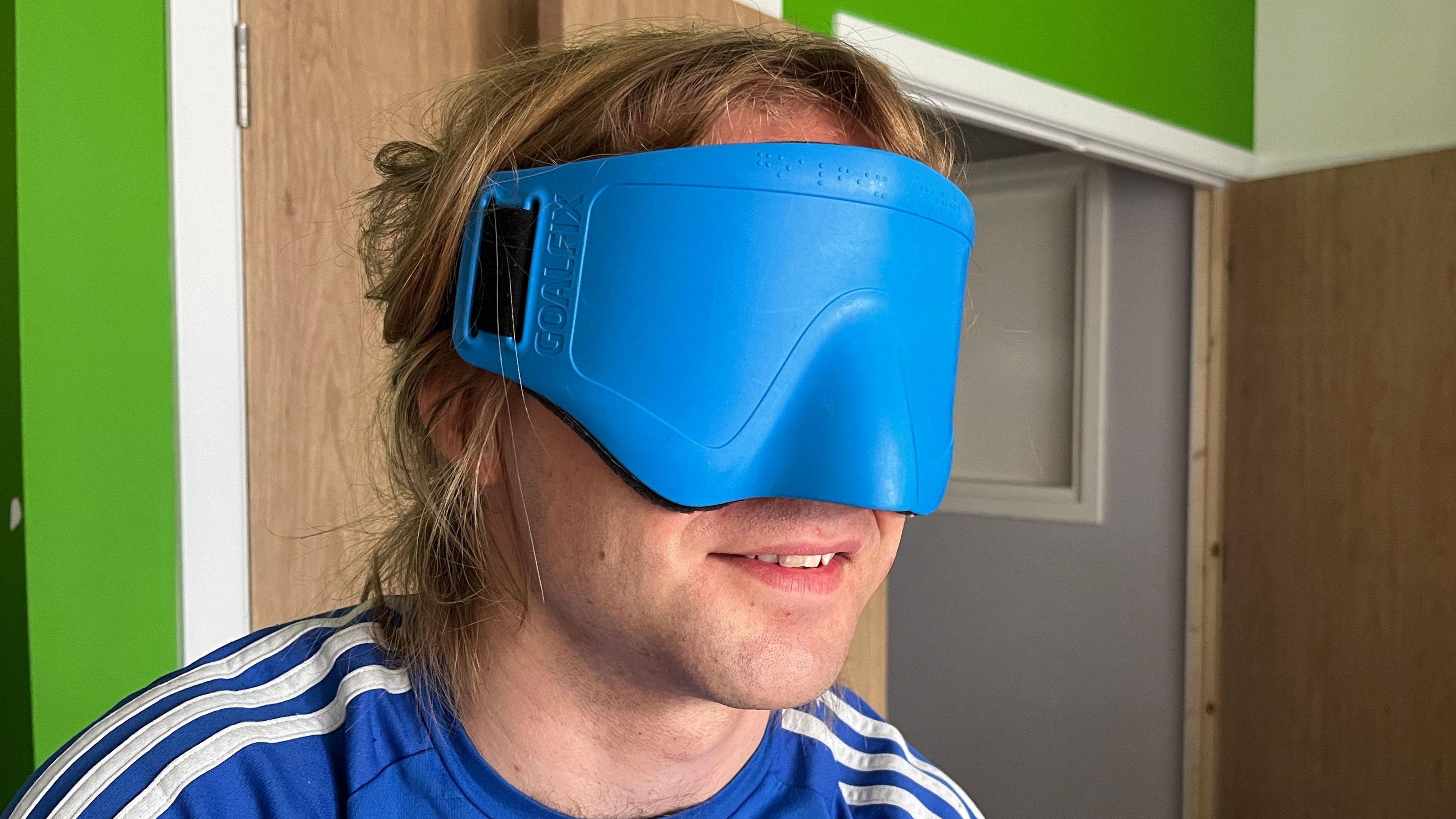
Warren Wilson in the blindfold he wears during Showdown games
Showdown, external - which was intended for visually-impaired people but can be played by anyone - takes place on a specially designed table.
Players bat the ball off a side wall, along the table, under a centre screen, and into the opponent's goal.
The first player to reach eleven points, or to lead by two or more points, is the winner.
The sport debuted at the International Blind Sport Federation (IBSA) World Games at the University of Birmingham in 2023.
Eight showdown tables used at the games were distributed across the UK, with one going to the club, which meets at The Signal Box Community Centre, external on Glenalmond Avenue.
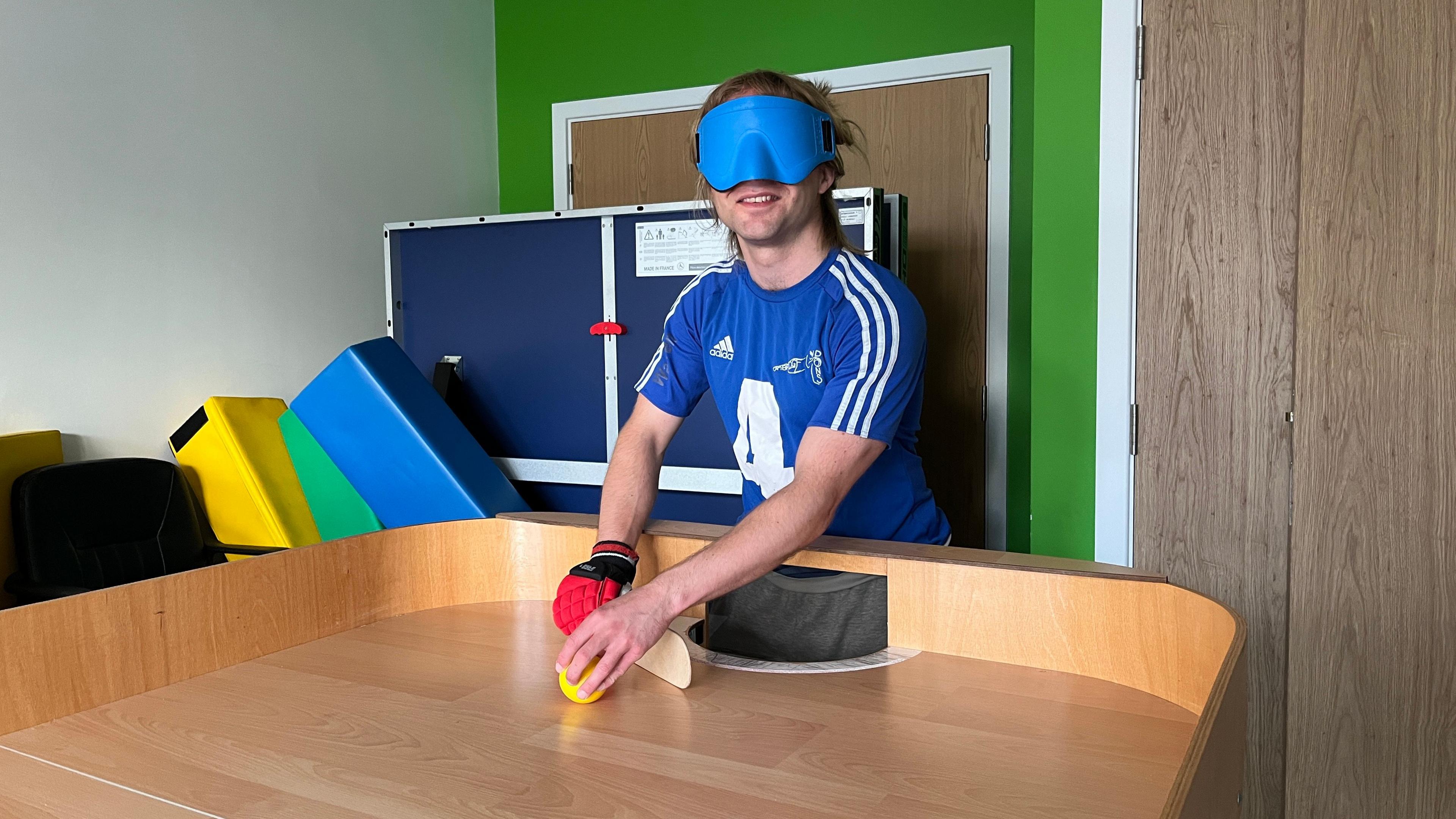
Mr Wilson ready for a game on the specially-designed Showdown table
A rare genetic condition meant over the space of three months Mr Wilson's sight deteriorated.
He had some light perception but was unable to see details like facial features and had to "[learn] to be visually impaired".
Mr Wilson, who is in his 30s, started playing visually impaired sports, including goalball, and took up playing Showdown this year.
"It means a great deal for blind and partially sighted people to be able to come together and play a sport like this," he said.
"The thing about showdown is, it is incredibly accessible."
He said he had seen games between nine-year-olds and people in their 70s.
Mr Wilson said that tracking sound was one benefit "but more than that, it's the deeper support you gain from coming together with other blind and partially sighted people - the stuff that comes about naturally through conversation".
Mr Wilson, a committee member at the East of England Showdown Club, added it would "love" more volunteers to set up the tables and meet members at the station and walk with them to the venue.
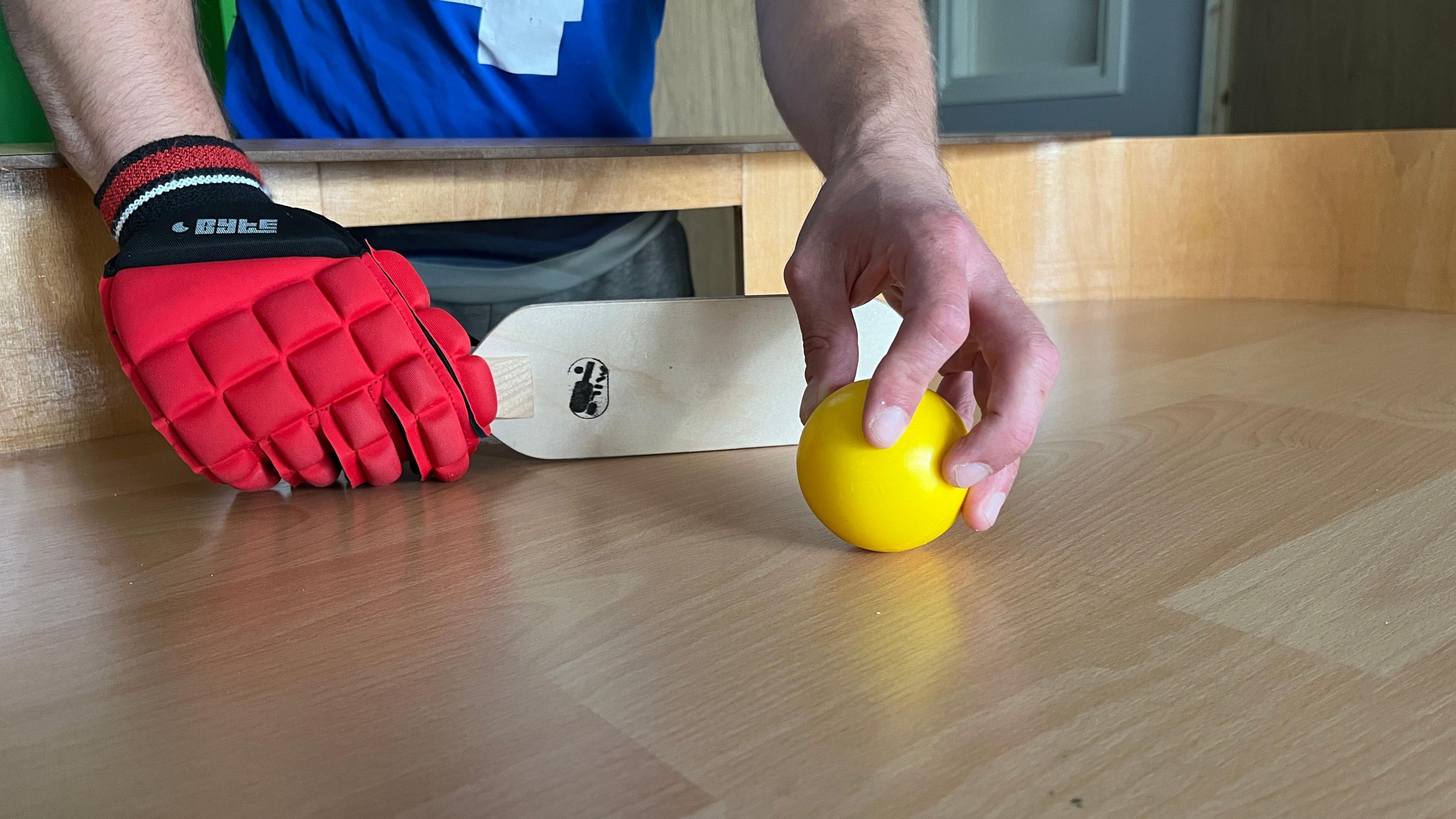
Players have a flat, paddle-like bat and the ball makes a sound as it rolls
Get in touch
Do you have a story suggestion for Cambridgeshire?
Follow Cambridgeshire news on BBC Sounds, Facebook, external, Instagram, external and X, external.
Related topics
- Published24 July
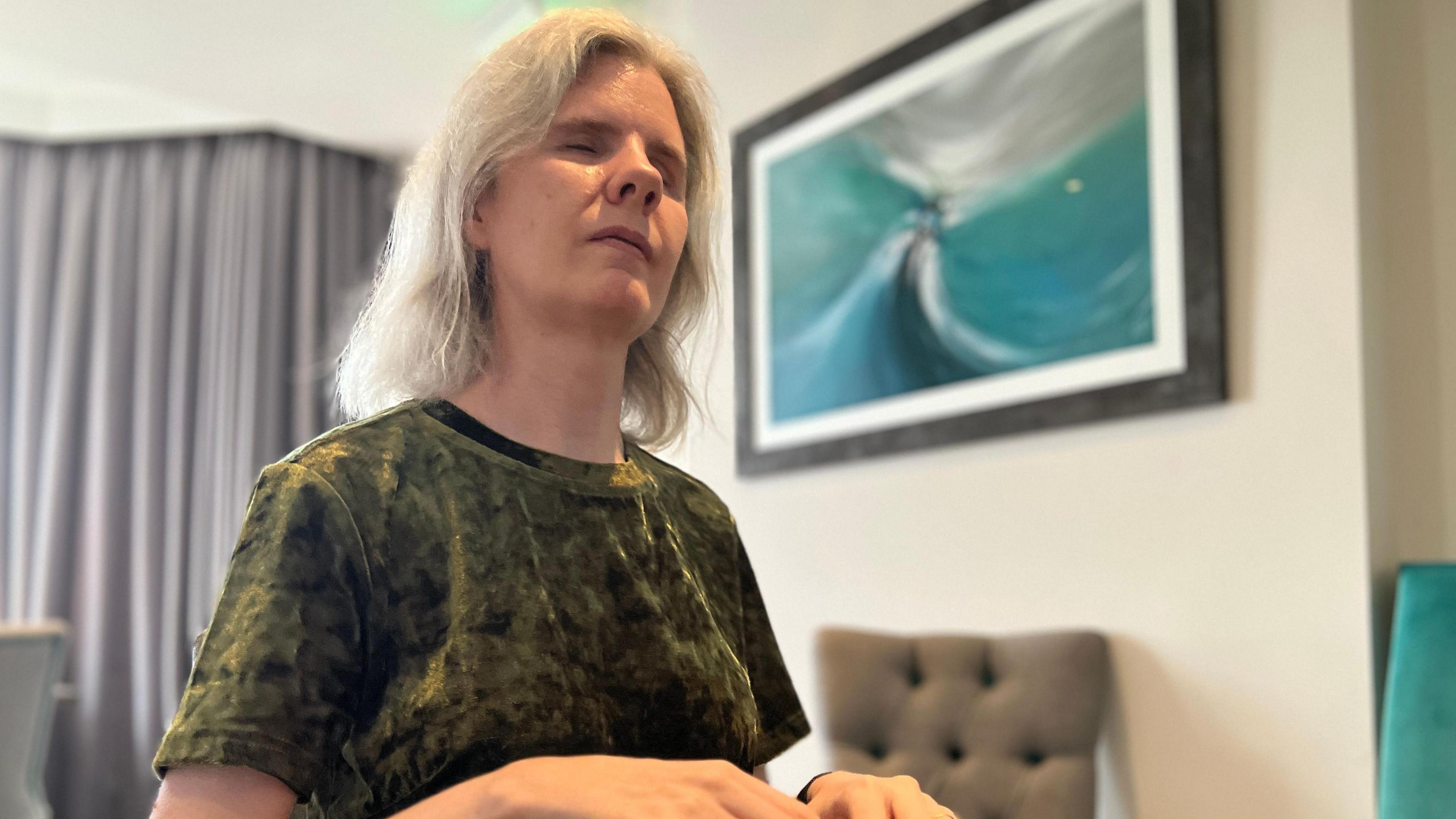
- Published22 February
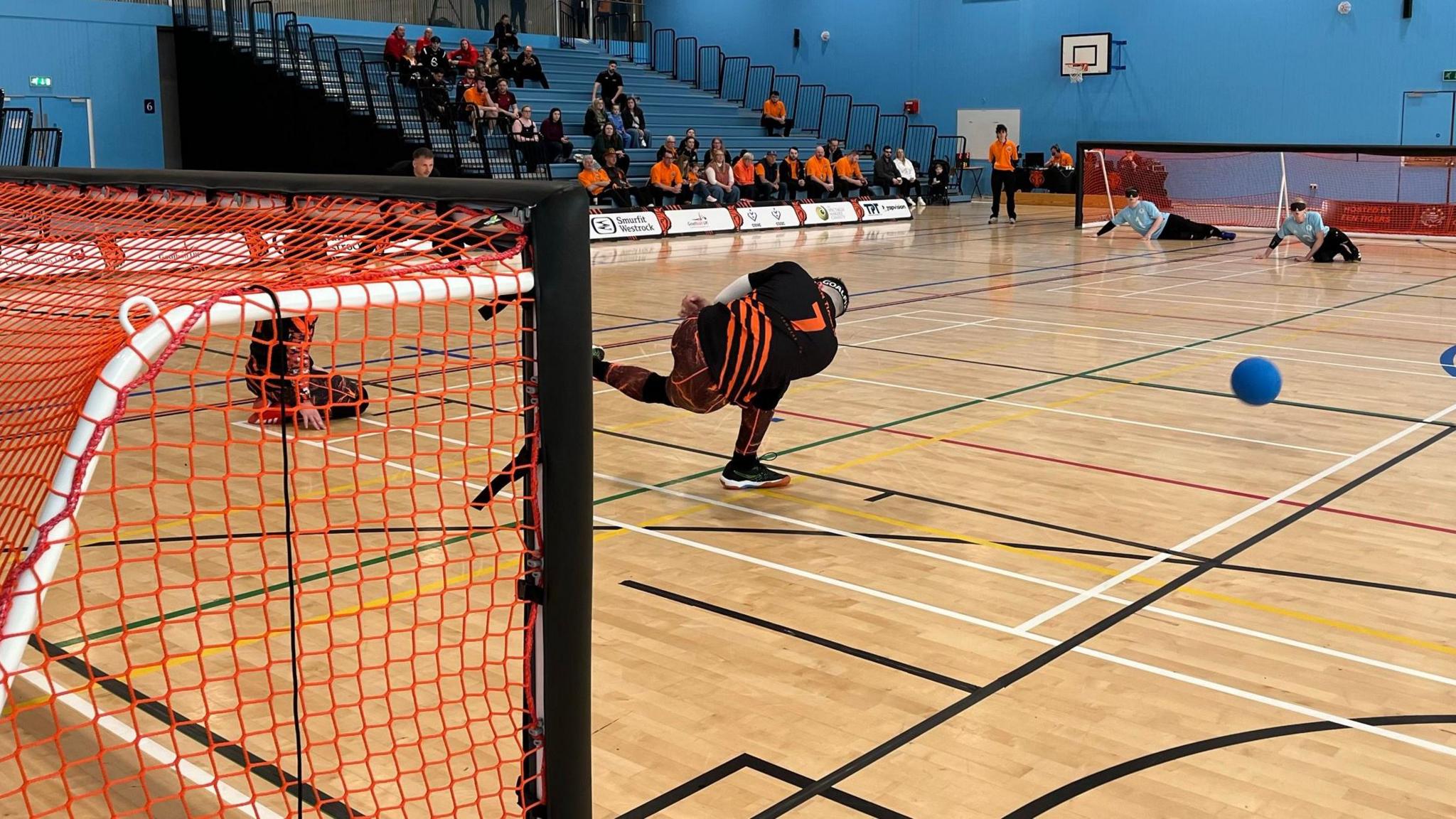
- Published19 August 2023
